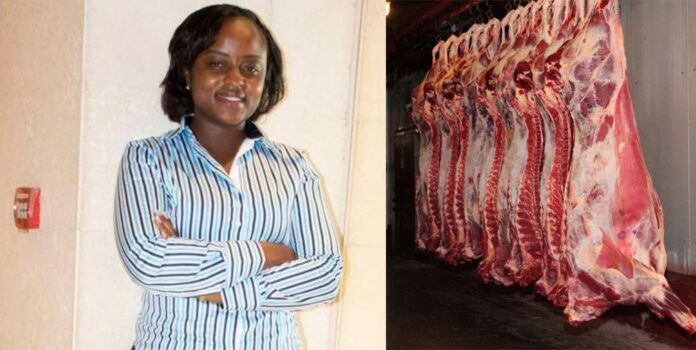Doreen Gacheri is one of the Kenyan entrepreneurs who have found success exporting food products to world markets.
Gacheri began the export business in 2014, exporting food items such as onions, packed maize flour, and processed cooking oil to Seychelles.
“I always knew I wanted to do business. After school, I worked for my father before moving to Seychelles when I got married. Seychelles depends a lot on imports.”
“There is a huge Kenyan community living there. I saw an opportunity and started the business” she said.
The Seychelles fruit export market was however faced with strict requirements including multiple certifications, and the returns were not as good as Gacheri anticipated.
This prompted her to switch to a less restrictive product. This is when the idea of exporting meat to Gulf countries where the rich heavily rely on food imports, knocked.
Since 2019 she has been exporting lamb and goat meat to Qatar, Kuwait, Saudi Arabia, Bahrain, and United Arab Emirates, which make up the Gulf Cooperation Council countries, slaughtering over 1,000 animals in a day when demand is high.
I got Canada visit visa in Nairobi; it’s now revoked and I’ve been banned for 5yrs
She begins by sourcing the right animal and has various sources for specific sheep breeds. Most of the animals are sourced in Moyale, Marsabit, Kajiado, Molo and Nanyuki.
“You could either go to the farmers and buy from them or get suppliers to bring the animals to the slaughterhouse. I choose the type of animals and quality then pay them. Relying on the suppliers is easier because we do quantities,” she adds.
After getting the animals, the next step is to ensure they are slaughtered right. Since the export markets are majority Muslim populated, the meat can only come from a halal slaughterhouse.
Once the animals are slaughtered, they are put in the chiller in the abattoir. The meat is maintained completely dry and then exported after a minimum of 24 hours.
The charges paid to the abattoir are inclusive of slaughtering, chilling, packaging and transporting to the airport.
“Quality is key in the export market. There are standards like health and regulations in line with that country. The market is also very specific on kilos and gender which has to be male animals.” She says.
She notes that her firm can export up to ten tonnes of meat which is 1,000 animals. In this case, she can spend Sh4.5 million in the purchase of the animals if the estimated price is Sh4,500 each.
As of March 2022, Gacheri was selling a blackhead for $5.2 (Sh592.8) per kilo which can go up to about $5.7 (Sh649.8) when the demand is high.
She notes that demand for the animals is usually high in the Gulf countries during festivities such as the Ramadhan.
According to her, for lamb and goat meat, export documents include an airway bill which is a booking confirmation form airline, a certificate of origin from the Kenya Revenue Authority and Kenya National Chamber of Commerce charged on every order.
In addition, one needs to present a halal certificate to show it follows practices under Islamic law, a veterinary certificate stating the condition of the meat including free from influenza, Rift Valley Fever (RVF), anthrax, and chemical components.








